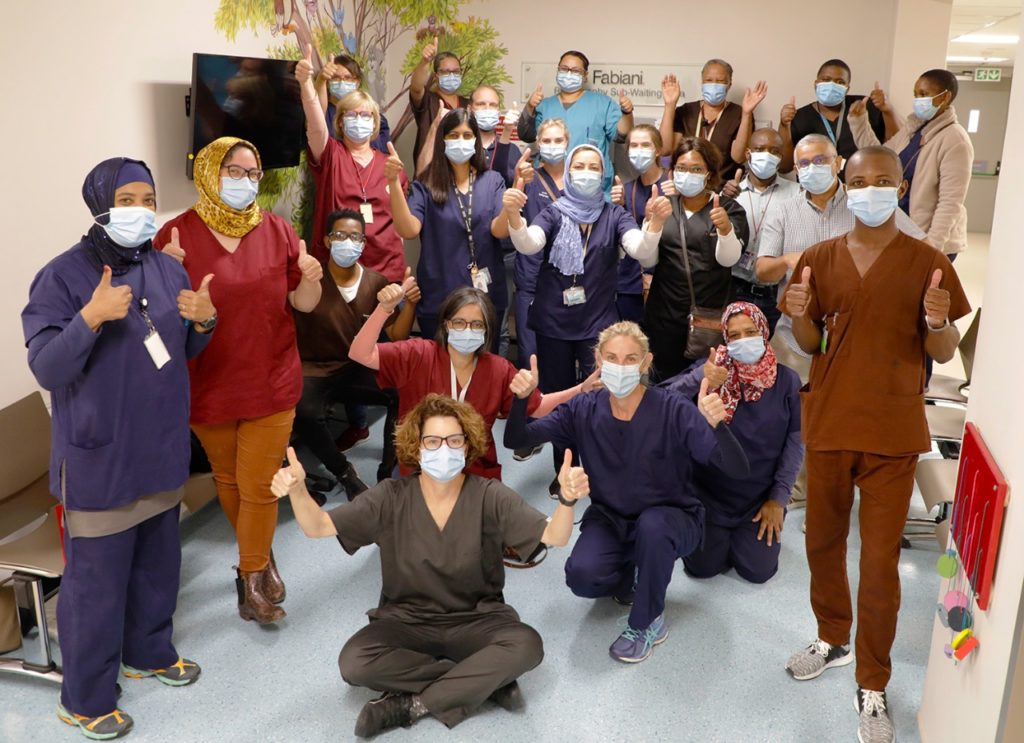Radiologists and radiographers around the world commemorated the International Day of Radiology on November 8, this year focusing on how they support patients during COVID-19 and recognising their essential role in fighting the COVID-19 pandemic through making an indispensable contribution to the diagnosis and treatment.
“Most patients coming through the doors at the Red Cross War Memorial Children’s Hospital require some form of medical imaging,” said Professor Tracy Kilborn, Head of Clinical Unit: Radiology at the hospital. “It’s not limited to x-rays and broken bones, it’s an integral part of the multi-disciplinary team.”

Radiology is made up of medical imaging (which includes MRI, CT, sonar, and x-rays) and nuclear medicine, where radioisotope injections are used (such as kidney, bone, and cancer imaging).
“In many cases, we’re the first to see the extent of a disease. It can be emotionally taxing, but it is rewarding; knowing that we have a hand in being able to catch and treat serious diseases,” said Kilborn.

While children haven’t been as affected by the COVID-19 pandemic as adults have, the Red Cross team has been able to free up resources to assist their colleagues at other facilities that were experiencing strain with staffing and contingency options.
“The pandemic has brought us close together and we’ve had members of our team lose close family members to COVID. We have had to embrace the challenges, dangers, and anxiety, often working in close settings with patients,” Kilborn explained.
“On the International Day of Radiology, I would like to thank all Radiographers, Radiologists, and others who help and support this field. We recognise your commitment and contribution to fighting the COVID-19 pandemic and to assisting our citizens in the Western Cape, South Africa, and the world,” said Western Cape Minister of Health, Dr Nomafrench Mbombo.
Pictures: Supplied

